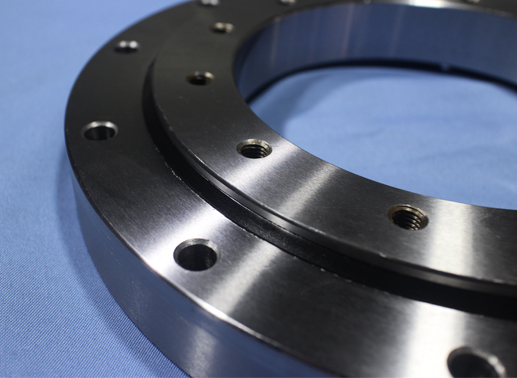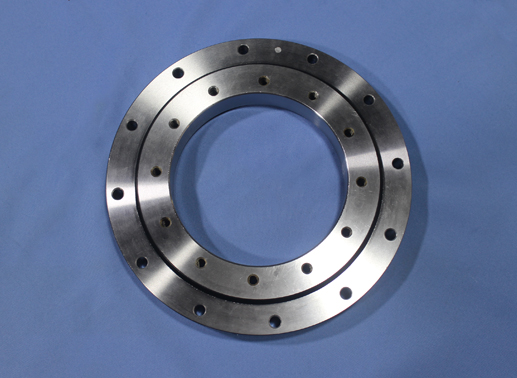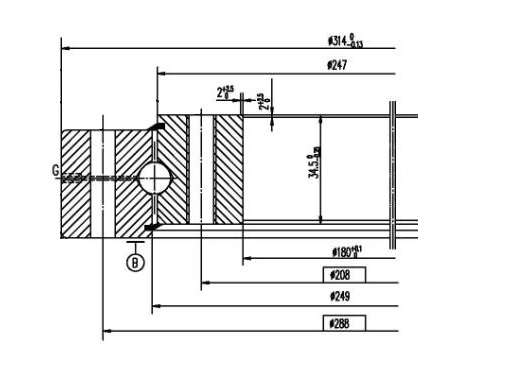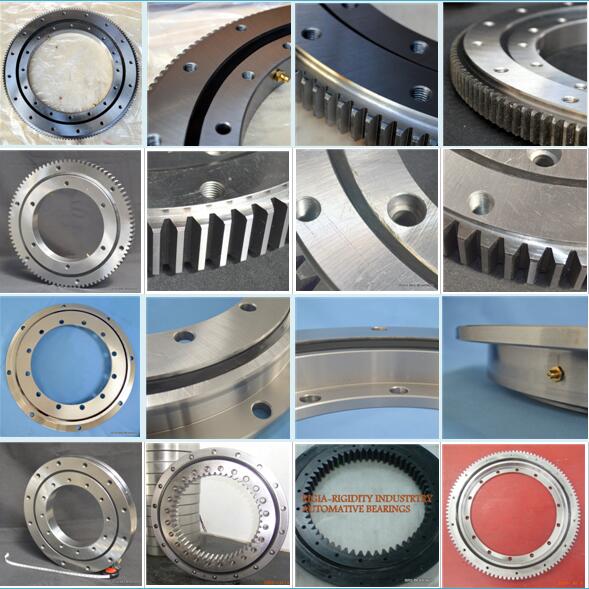-
Part NO.
Open type:BRS-NQ-248
-
Dimension
di:180mm
Da:314mm
H:42mm
-
Mounting
Li:208mm
La:288mm
-
Basic Load Ratings
Cr:-kN
Cor:-kN
-
Gear Teeth
m:-mm
z:-mm
-
Equivalent Model
- Features
- Mounting
Slew bearing wind turbine pitch bearing BRS-NQ-248 specifications:
Type of guide Steel balls Space retainer Yes Material 50Mn Standard lubrication method Grease lubrication Oil hole Yes (outer ring) Sealing NBR sealed both sides Surface treatment Available upon request Axial clearance -0.01 ~ 0mm Rotation accuracy Inner/Outer ring axial runout max 0.1mm Working temperature -15℃ ~ 80℃ Check more BRS customized slewing bearing products.
BRS-NQ-248 small pitch bearing blade bearing features:
1. Four point contact ball slewing bearing for wind turbines.
2. Support radial, axial loads, and moment loads at the same time.
3. Grinding finished raceway and gear teeth, provide higher precision.
4. With mounting holes on both inner and outer rings, easy to arrange installation.
6. Specially designed lubricating system and sealing method, make sure bearings can operate under severe working environment.
7. Special surface treatment available for outdoor use.Rotation accuracy test of 180x314x42mm slewing bearing
BRS-NQ-248 custom small slewing ring mounting instructions:

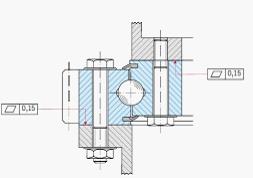
1. Make sure the mounting surface is flat and clean and free from burrs or
rough edge.
2. The unhardened zone is marked with an “S” on the slewing ring, it must be positioned outside the main load-carrying areas.
3. Commissioning of the slewing ring under sufficient load.

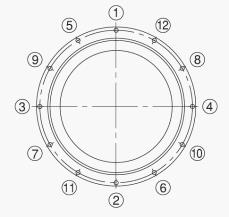
4. Adjust the backlash of gear and recheck it after the final tightening of the bearing.
5. Fastening bolts. Place the bearing onto the connecting structure and align the screw holes. Screw all the bolts in the holes first and follow the order as shown in the diagram when tightening bolts in the diagonally opposite sequence. Do not tighten bolts randomly.
6. Check the installation by rotating the assembled bearing arrangement. The torque should not show any excessive variation or “tight spots” during rotation.

